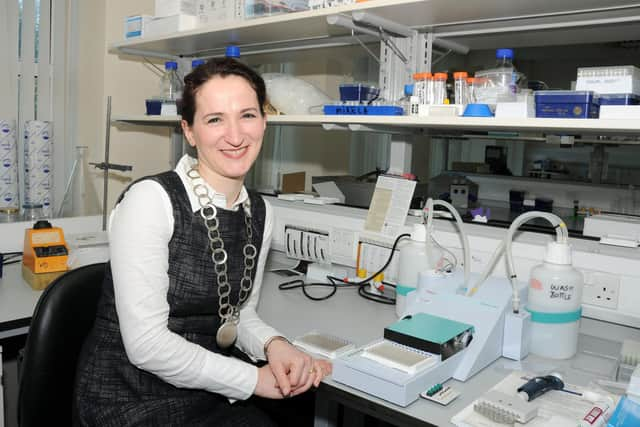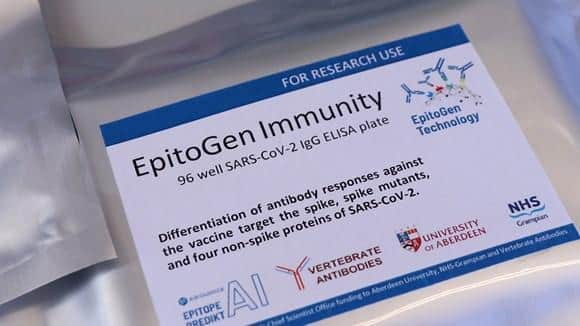Covid Scotland: 'Game-changing' antibody test can detect variants
For the first time, the new tests can be used to estimate the prevalence of circulating variant strains in the community, including the Alpha variant, first identified in Kent, and the Delta variant, first identified in India and now the dominant strain in Scotland.
The tests, developed by Aberdeen University in collaboration with biotechnology group Vertebrate Antibodies Ltd and NHS Grampian are also more accurate than those currently available.
Advertisement
Hide AdAdvertisement
Hide AdThey can detect antibodies with more than 98 per cent accuracy, while existing tests have 60 to 93 per cent accuracy.


They can also test whether a person has long-term immunity to the virus, either because of previous infection or a vaccine – information that is vital in working to prevent the spread of infection.
The tests are able to estimate how vaccine immunity will last and how effective a vaccine will be against new variants.
Discussions are underway around a possible rollout of the tests to the NHS. The same technology could also be used to develop other highly sensitive diagnostic tests, including for infectious diseases or auto-immune diseases like type one diabetes.
Professor Mirela Delibegovic from Aberdeen University, academic lead on the project, said: “Accurate antibody tests will become increasingly important in the management of the pandemic and this is a truly game-changing technology with the potential to dramatically change the trajectory of global recovery from the pandemic.”


She added: “As the virus mutates, existing antibody tests will become even less accurate hence the urgent need for a novel approach to incorporate mutant strains into the test – this is exactly what we have achieved.”
Prof Delibegovic worked alongside industry partners, Vertebrate Antibodies and colleagues in NHS Grampian to develop the new tests using the innovative antibody technology known as Epitogen.
Dr Brittain-Long, consultant in infectious diseases at NHS Grampian and a member of the research team, said: “This new testing platform adds crucial sensitivity and specificity to the current available serology tests and has the potential to monitor individual and population based immunity in a way that has not been possible before.”
A message from the Editor:
Thank you for reading this article. We're more reliant on your support than ever as the shift in consumer habits brought about by coronavirus impacts our advertisers.
If you haven't already, please consider supporting our trusted, fact-checked journalism by taking out a digital subscription.
Comments
Want to join the conversation? Please or to comment on this article.
